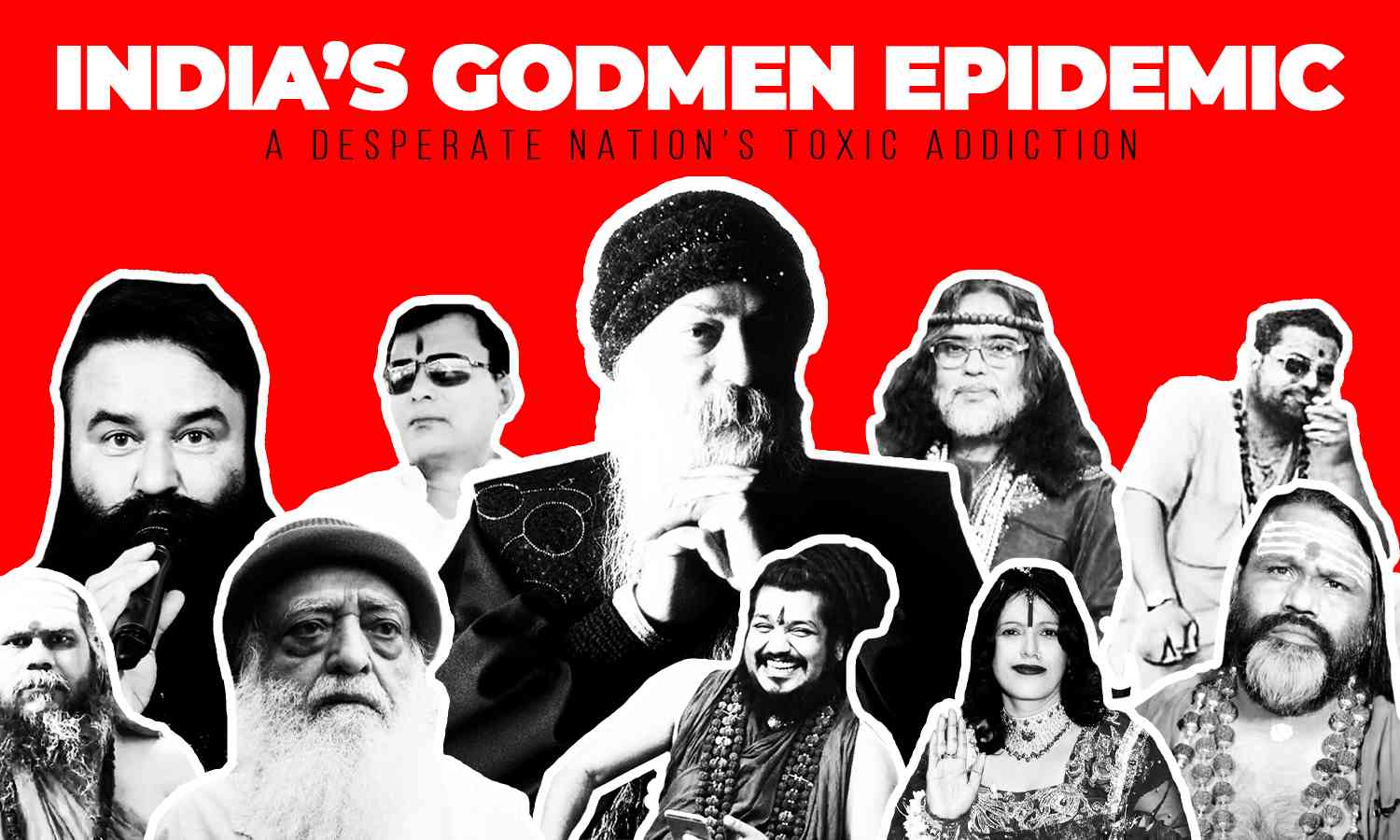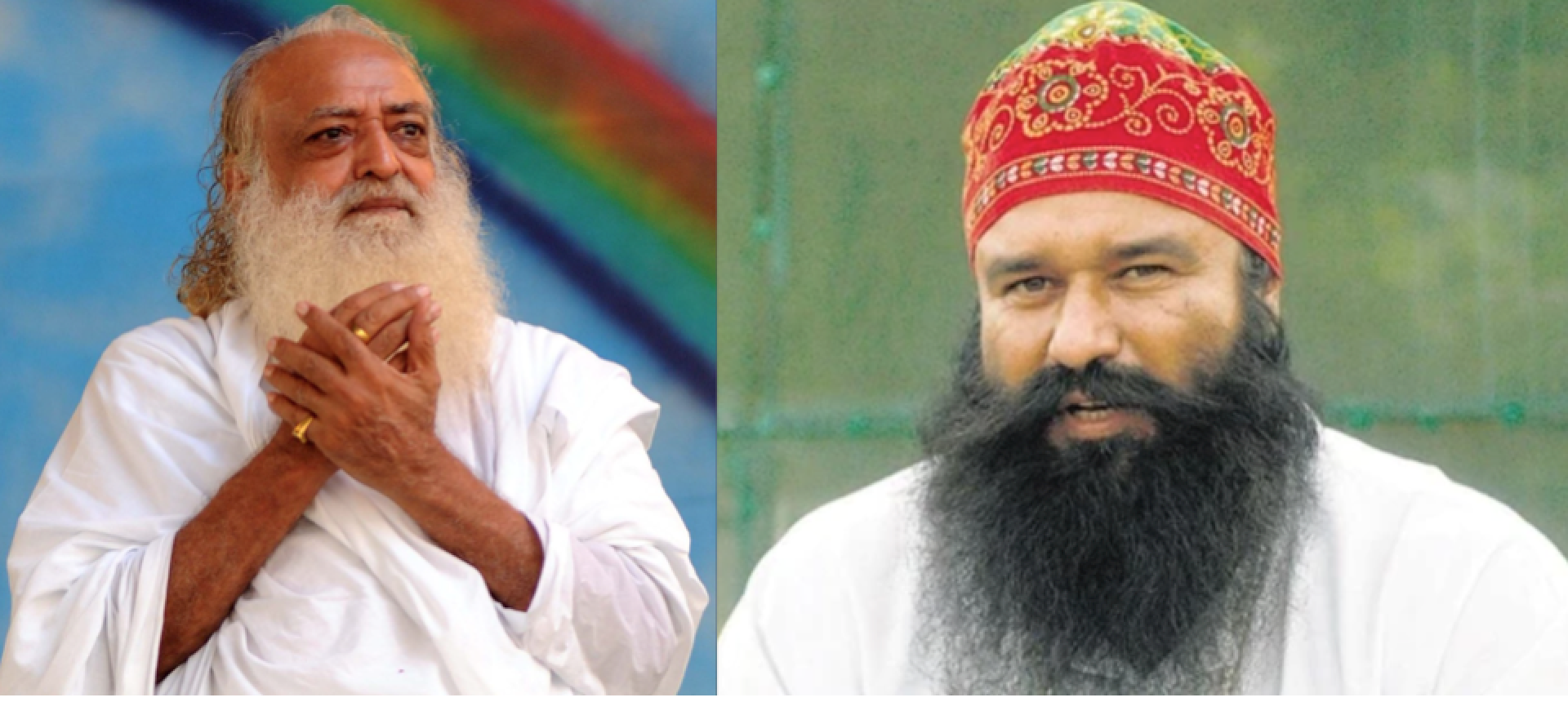
Superstition's Continued Death-grip on the Indian Society
Like their counterparts elsewhere in the world, India’s godmen present themselves as intermediaries between humans and the divine. They exploit fear, despair, and the universal human desire for relief from suffering, offering supernatural solutions to everyday problems.
Many of their so-called miracles are nothing more than ordinary occurrences attributed to divine intervention. For instance, the birth of a male child or the recovery from an illness—both of which can be explained by biological or medical factors—are often credited to the blessings of a godman.
Moreover, godmen operate within different strata of society. Some cater to the poor, while others serve the elite. Take, for example, Tantrik Jagadacharya Chandraswami (born Nimichand Jain), who was once a prominent figure among India’s rich and powerful. During the Rajiv Gandhi era, he became known as the spiritual guide of three Prime Ministers—P.V. Narasimha Rao, Chandra Shekhar, and V.P. Singh. His influence was built through association with high-profile figures, making him a fashionable guru for the affluent.

Chandraswami’s extravagant lifestyle was a far cry from the asceticism one might expect from a spiritual leader. He was known for mingling with international businessmen such as Adnan Khashoggi and enjoying luxury cruises with the Sultan of Brunei. His sermons were tailored to justify material wealth, catering to the rich who sought spiritual validation for their opulence. Similarly, ‘Bhagwan’ Rajneesh, also known as Osho, attracted thousands of followers, particularly among Western hippies in the 1970s. His teachings combined spirituality with hedonism, appealing to those who sought liberation while indulging in a lifestyle of excess.
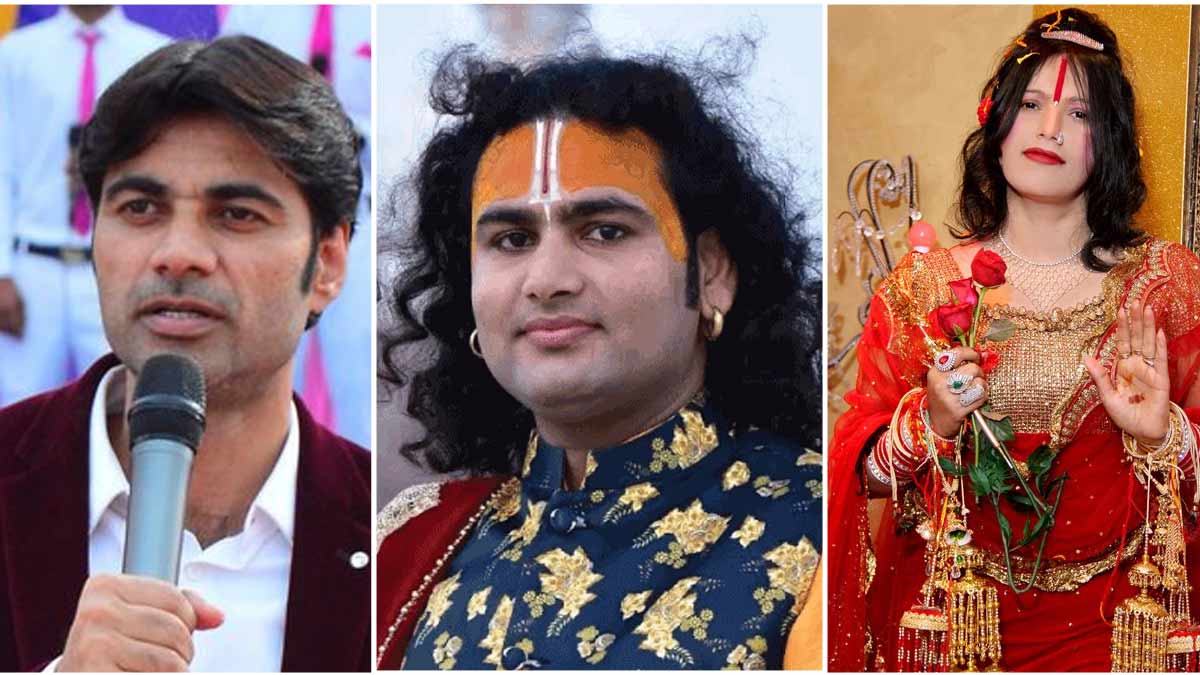
How 'Babas' and 'Matas' Exploit People's Insecurities
India has an abundance of godmen—and a significant number of them have found their way into jail. Yet, no matter how many scandals emerge, a fresh crop of self-proclaimed spiritual figures always appears, drawing in new devotees eager to place their faith and financial resources in their hands. Over the past decade, figures like Gurmeet Ram Rahim Singh and Asaram Bapu have dominated media headlines due to their criminal activities, yet the public’s fascination with such figures remains undiminished.
The tendency to seek divine intervention is deeply ingrained in Indian culture. Many religious texts glorify individuals with supernatural abilities, creating a precedent for modern godmen to exploit. Prabir Ghosh, General Secretary of the Science and Rationalists’ Association of India, explains, "Indians are strong believers in miracles and are convinced that someone can rescue them from their suffering. This makes them particularly susceptible to the influence of godmen."
Those from the most economically disadvantaged backgrounds are the most willingly endure long waits for a glimpse of these so-called spiritual leaders and part with their hard-earned money in the hope of miracles—whether to cure illnesses, remove obstacles, or bring them prosperity. The allure of these figures, who promise divine intervention, remains undiminished despite repeated instances of deception and crime.
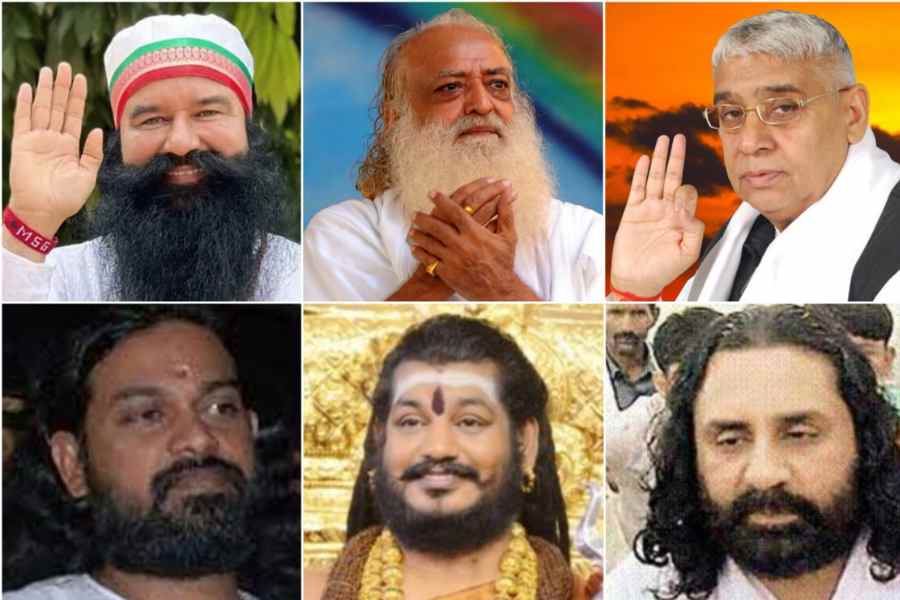
The Tradition of Gurus in India
Spiritual gurus have been an integral part of Indian culture for centuries, often providing moral guidance and financial assistance to their followers. Many have contributed to social reform, particularly in uplifting lower castes who have historically been marginalised. However, modern self-proclaimed godmen and godwomen are a different breed. They are often flamboyant, politically connected, and wield immense influence. They amass enormous wealth and attract large gatherings, yet many of them are frequently embroiled in serious criminal cases.

Miracles and Faith
People who turn to these self-proclaimed spiritual leaders are often from marginalised backgrounds, left without adequate state support. As a result, they seek both spiritual and material solace from godmen. Dr Shivani Katara, a PhD in Social Medicine from Delhi School of Economics, highlights the role of miracles in strengthening these figures’ appeal. "For most Indians, a miracle is simply another form of religious experience. The ability to perform miracles cements a guru’s divine status among the masses and reinforces people's faith in their spiritual powers."
Despite cases of deception and even physical harm, followers continue to place immense trust in these cult-like organisations. Groups such as 'Dera Sacha Sauda', and figures like Bhole Baba, thrive on this unwavering devotion.
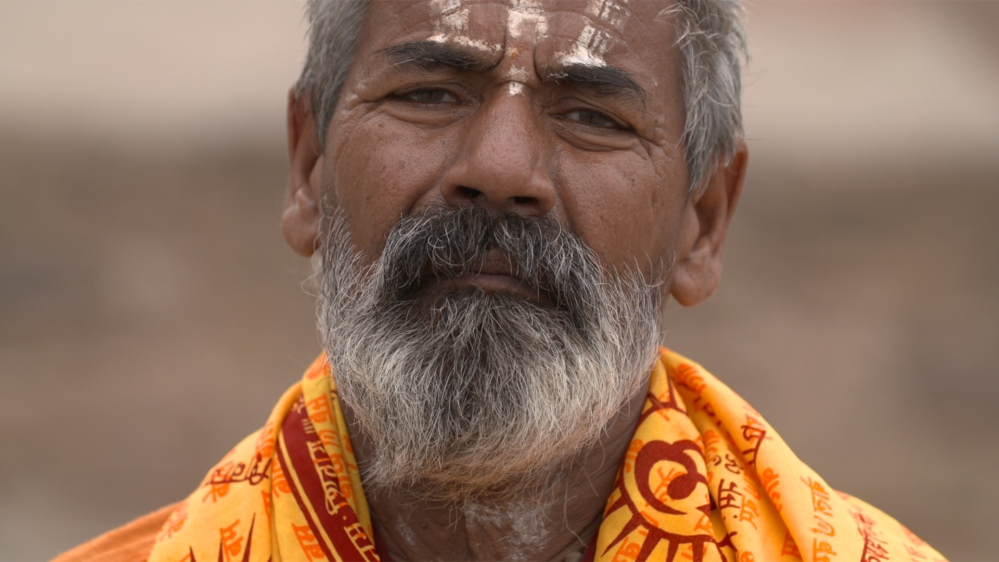
The Criminals in Religious Garb
Over the years, numerous godmen have been exposed for their involvement in crimes ranging from financial fraud to sexual assault and even murder. Notorious figures such as Gurmeet Ram Rahim Singh and Asaram Bapu have been convicted of heinous crimes, yet their devoted followers remain unwavering in their belief in them. In 2010, a scandal erupted when a video surfaced showing the self-styled godman Nithyananda engaged in inappropriate acts with women. Instead of facing accountability, he fled India and has remained in hiding since 2019. In a bizarre twist, he later claimed to have founded a Hindu micronation named 'Kailaasa'.

According to Dr Malinee Priya, Associate Professor of Psychology at Dr Bhimrao Ambedkar College, Delhi University, societal factors contribute significantly to the appeal of these godmen. "In India, people see godmen as a source of immediate relief from anxiety and suffering. Economic hardship and job insecurity heighten their vulnerability, making them turn to spiritual figures who promise solace and solutions," she explains.
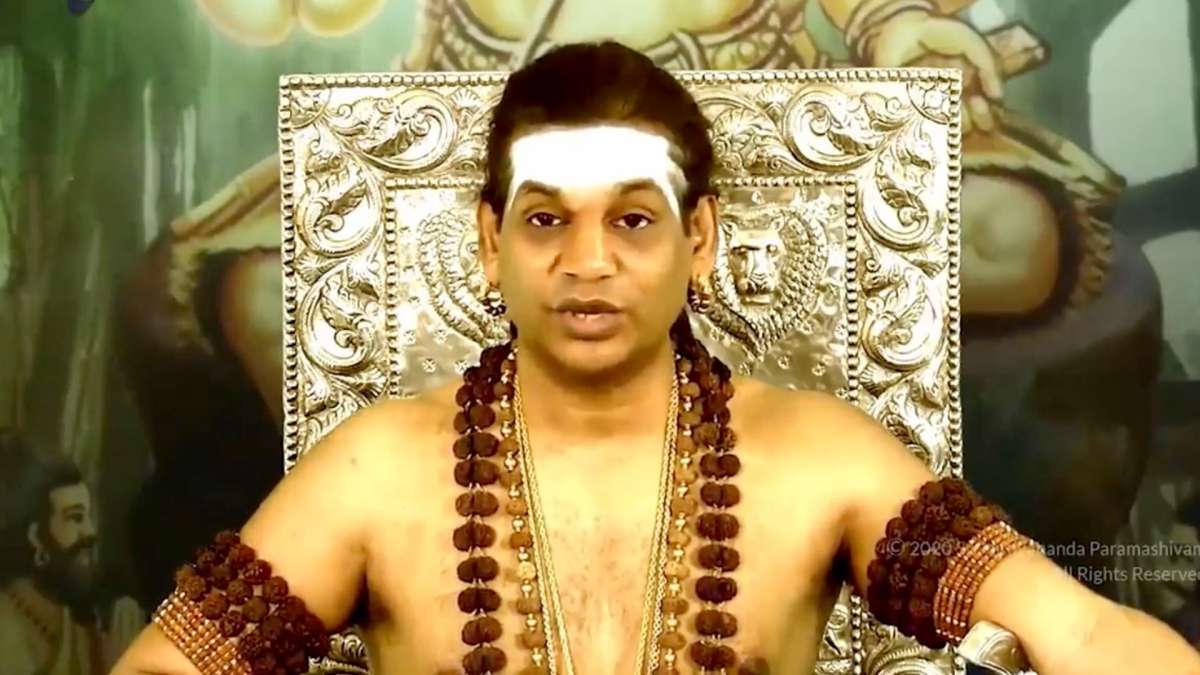
Why Is the State Hesitant to Act Against Godmen?
Strange bedfellows, politics and religion makes. Despite accumulating vast wealth through dubious business ventures and facing serious allegations of sexual abuse, many self-styled godmen in India continue to operate with impunity. Why does it take a tragedy, such as the Hathras stampede, to bring this long-standing issue back into public discourse?
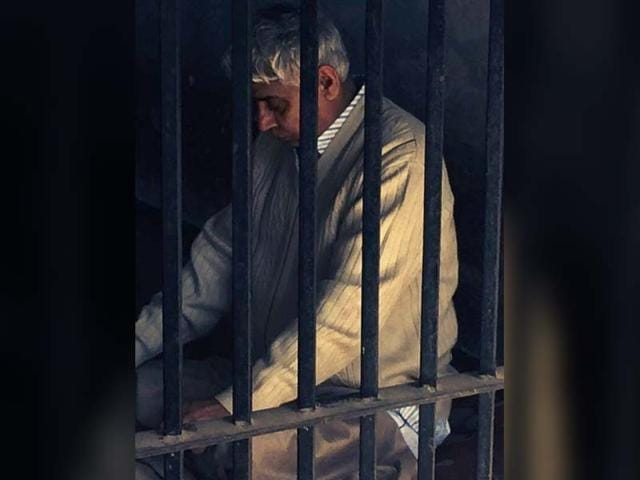
One such figure is ‘Bhole Baba’, formerly known as Constable Suraj Pal Singh, who organised a ‘Satsang’ in Hathras that led to a devastating stampede, resulting in the deaths of 121 people. With his signature white suits and designer sunglasses, he has garnered a significant following, particularly among Dalit women in Uttar Pradesh.

The Cult of Godmen and Political Patronage
Bhole Baba is only the latest in a long line of controversial godmen who command cult-like followings. These self-styled spiritual figures exploit the blind faith of the masses, particularly the poor and uneducated, accumulating immense wealth while leading opulent lifestyles. Many have faced criminal charges, yet their influence remains intact. Promising miracle cures and faith healing, they secure unwavering devotion from their followers.
Their power extends beyond the spiritual realm, as they cultivate strong political connections. Leaders from across party lines seek their endorsement to consolidate their voter base. For instance, prominent politicians such as Shivraj Singh Chouhan and Nitin Gadkari from the Bharatiya Janata Party (BJP), along with Congress leader Kamal Nath, have been associated with Dhirendra Shastri of Bageshwar Dham, also known as Baba Bageshwar.
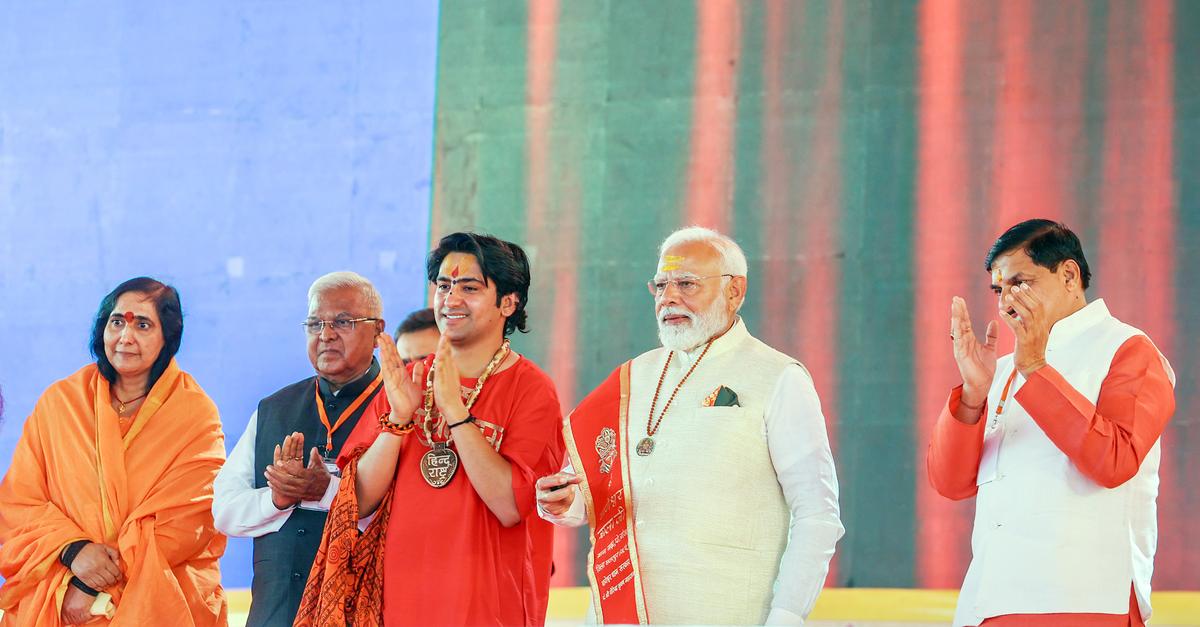
These political ties prove invaluable when godmen face legal troubles. Following the Hathras stampede, the event organisers and volunteers were arrested, including Bhole Baba’s close associate, Dev Prakash Madhukar. However, despite his central role in the congregation, Bhole Baba himself has not been named in the police complaint. His connections with various political figures in Uttar Pradesh may have shielded him from scrutiny.

The Case of Bhole Baba
Before the Hathras stampede, Bhole Baba was relatively unknown on a national scale, though he had amassed a significant following. Interestingly, before assuming his spiritual persona, he served as a constable in the Uttar Pradesh Police for 18 years, working across various districts, including intelligence units. This background may have provided him with insights into human psychology and social dynamics, enabling him to manipulate public perception effectively.
Singh had already faced legal issues, including allegations of sexual assault, yet his followers remained steadfast in their faith. At one point, he was even arrested for attempting to take a deceased girl from her family, claiming he could resurrect her. His devotees, however, continued to see him as a divine healer and exorcist.

In response to the tragedy, the state government has suspended several local officers. However, Bhole Baba himself remains at large in his Mainpuri ashram, without so much as a First Information Report (F.I.R.) filed against him. Should the head of the religious order not be held accountable for the lack of crowd control and safety measures? Yet, the Special Investigation Team (SIT) has deflected blame, stating in its report that the disaster was due to negligence by the event organisers, as well as the police and administration. Authorities justify their inaction by arguing that arresting Bhole Baba could trigger a ‘law and order’ crisis.
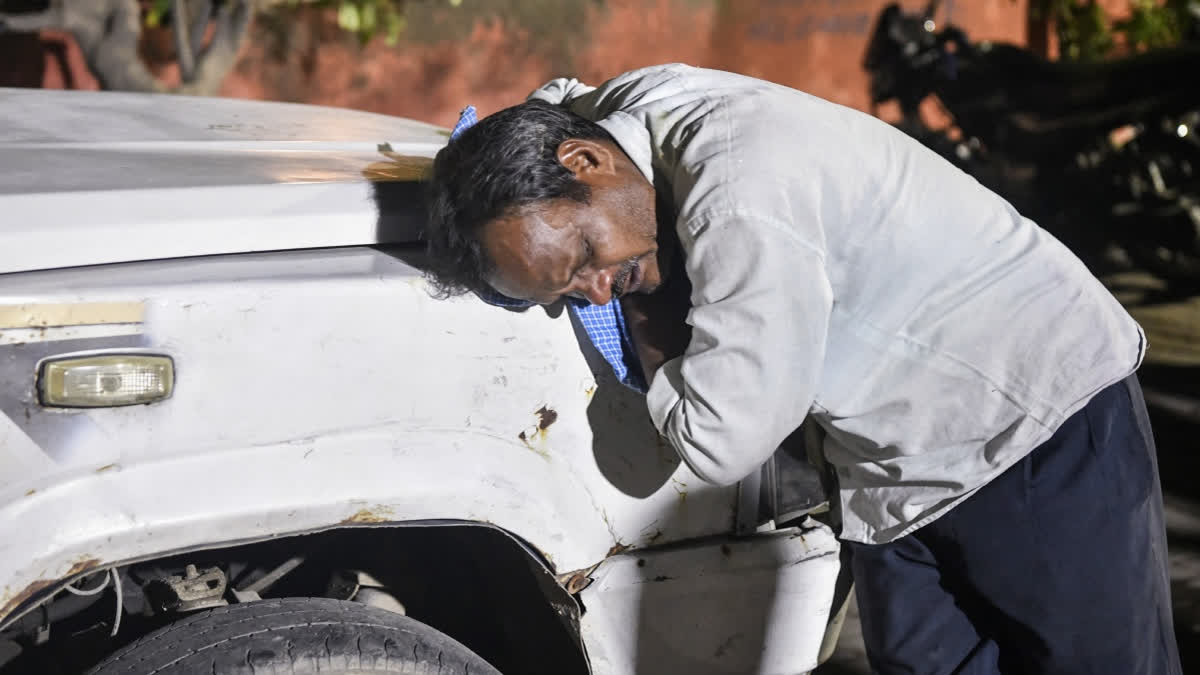
The Political and Legal Shielding of Godmen
The continued prominence of godmen in India is largely due to the patronage they receive from those in positions of power. Political leaders, senior bureaucrats, judges, and corporate executives often turn to spiritual gurus for both personal guidance and professional decision-making. One glaring example is Chitra Ramakrishna, the former CEO of the National Stock Exchange (NSE), who publicly admitted that she had been professionally advised for over two decades by a mysterious Himalayan yogi known as ‘Sironmani’.
However, the influence of these figures extends beyond personal mentorship—they also wield considerable political power. Gurmeet Ram Rahim Singh, the controversial leader of Dera Sacha Sauda (DSS), is a prime example. As a preacher, songwriter, and film producer, he commanded a massive following, particularly among Dalit communities in Punjab, Haryana, and other northern states. He openly directed his supporters on whom to vote for in elections, making him a political force to be reckoned with.
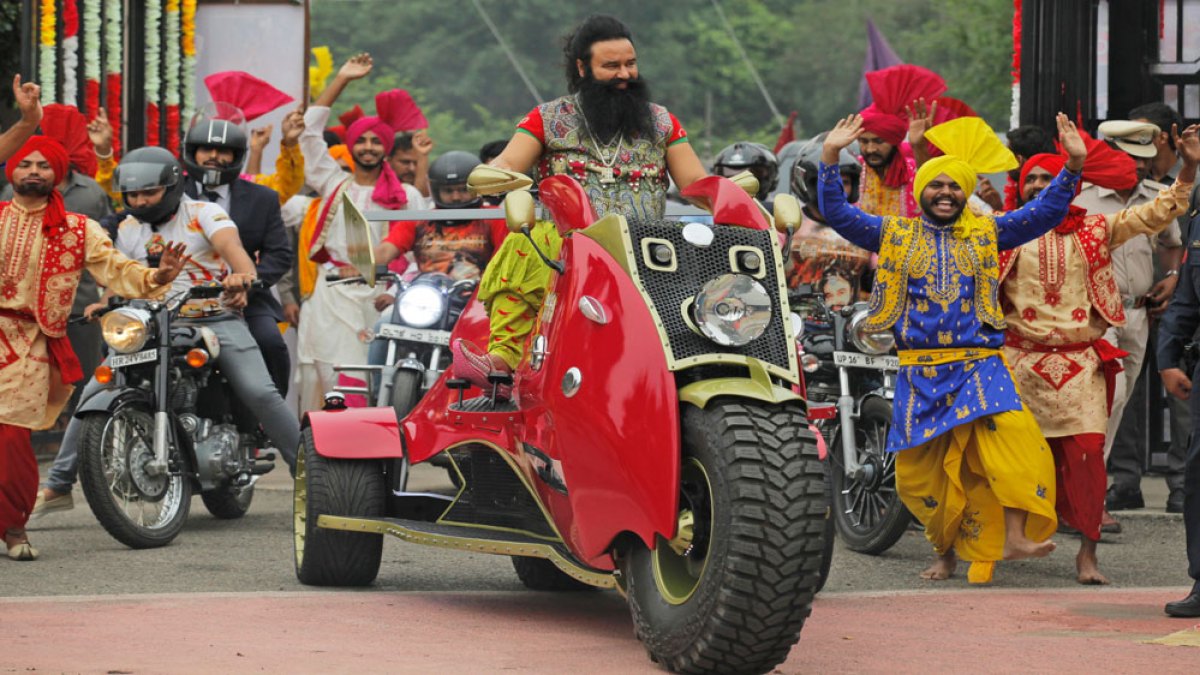
Despite being convicted of murder and rape and sentenced to 20 years in prison, Ram Rahim continues to enjoy privileges. He has been granted multiple paroles, with the Punjab & Haryana High Court finally stepping in to put a halt to the practice after his ninth parole in January this year. His financial empire, estimated at ₹1,453 crore, remains intact, reflecting the level of influence he continues to exert even from behind bars.

The Dark Side of India's Godmen
Last week, a 23-year-old law student from Kerala, a southern state in India, took drastic action against a self-proclaimed holy man who had allegedly been sexually assaulting her for the past eight years. In an act of desperation, she severed his genitals when he attempted to rape her once again, realising that there was no other way to escape his abuse.
The incident took place at her home in Thiruvananthapuram, the capital city of Kerala, where she was allegedly attacked by Gangeshananda Theerthapada, a man who presented himself as a spiritual healer. He had been a frequent visitor to the household, claiming to provide treatment for her bedridden father.
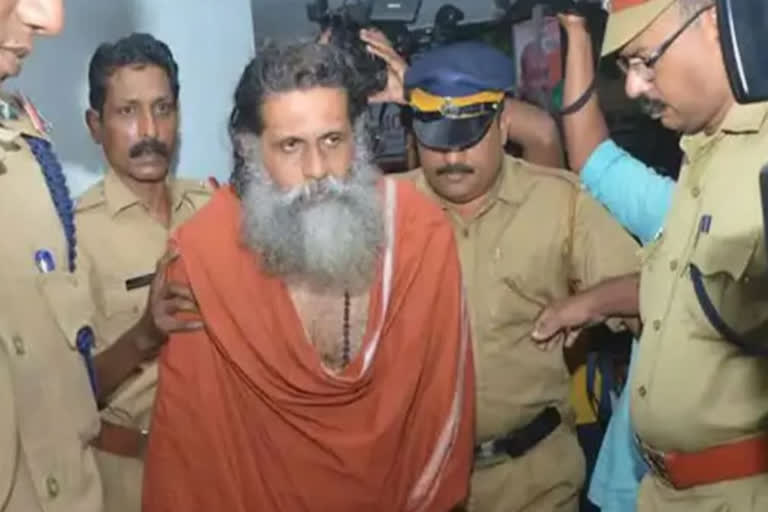
Theerthapada, also known as Sree Hari, had gained considerable influence, having preached at several temples across Kerala. He was revered by hundreds of Hindu families who saw him as a religious guide. However, his arrest on charges of rape places him among a growing number of self-styled gurus who have been imprisoned across the country for committing sexual offences.

The Rising Incidence of Sex Scandals
India, a Hindu-majority nation with a population exceeding a billion people, has a vast network of so-called godmen, gurus, and swamis. Many of these figures have exploited their positions of influence to commit sexual crimes. Despite repeated scandals, millions continue to place unwavering faith in these charismatic individuals, allowing them to build vast empires by preying on people's trust and gullibility.
One of the most notorious cases in recent years involved Rampal Singh Jatin, a controversial guru from the northern state of Haryana. When police attempted to arrest him three years ago, they were met with violent resistance from his followers. Investigations later revealed shocking details about his hidden lifestyle, which was marked by excess and abuse, far removed from the ascetic image he portrayed.

Rampal had a preference for women whom he referred to as "sadhikayaen" or hostesses. During raids on his premises, police discovered pregnancy kits and sexual potency drugs in his quarters, further exposing the hypocrisy of a man who had claimed to be the reincarnation of the 15th-century mystic poet Kabir.
"For someone who claimed to embody the teachings of a revered spiritual figure, his life was filled with material luxuries, and women played a central role in it," an investigator told DW.
Another prominent godman, Asaram Bapu, was arrested in 2013 after a teenage girl accused him of rape. She alleged that the guru had lured her by promising to cleanse her of evil spirits. His legal troubles, however, were not new. In 2008, two young boys had died at his ashram in Gujarat under suspicious circumstances. Despite the serious allegations, his loyal followers insist that the charges against him are fabricated.
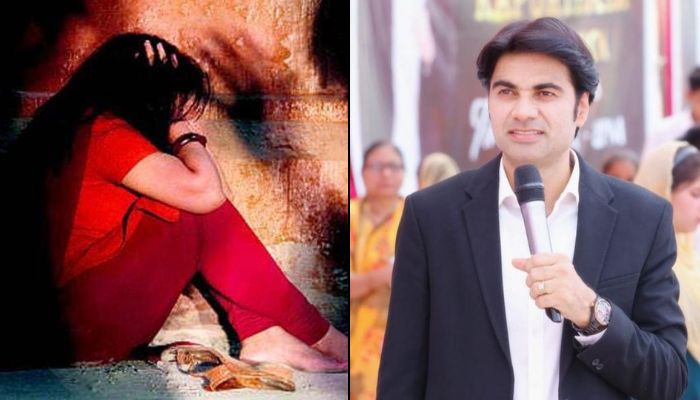
Similarly, in 2013, Mahendra Giri, aged 65, was arrested for confining and repeatedly raping a 24-year-old woman over a period of four months at his ashram. Disturbingly, it was later discovered that the victim’s husband and mother-in-law had acted as accomplices in the crime. All three were eventually sentenced to prison. In yet another case, Swami Nityananda, a controversial Hindu godman, was arrested in 2010 after a leaked video showed him engaging in sexual activities with an actress from southern India.

We need a million Narendra Dabholkars
Beyond their business dealings, many of these godmen have been exposed as serial sexual predators. There are stringent laws in place to tackle such crimes, including the Criminal Law (Amendment) Act, 2013, which clearly defines and criminalises rape. Yet, the question remains—will the government enforce these laws against powerful religious figures?
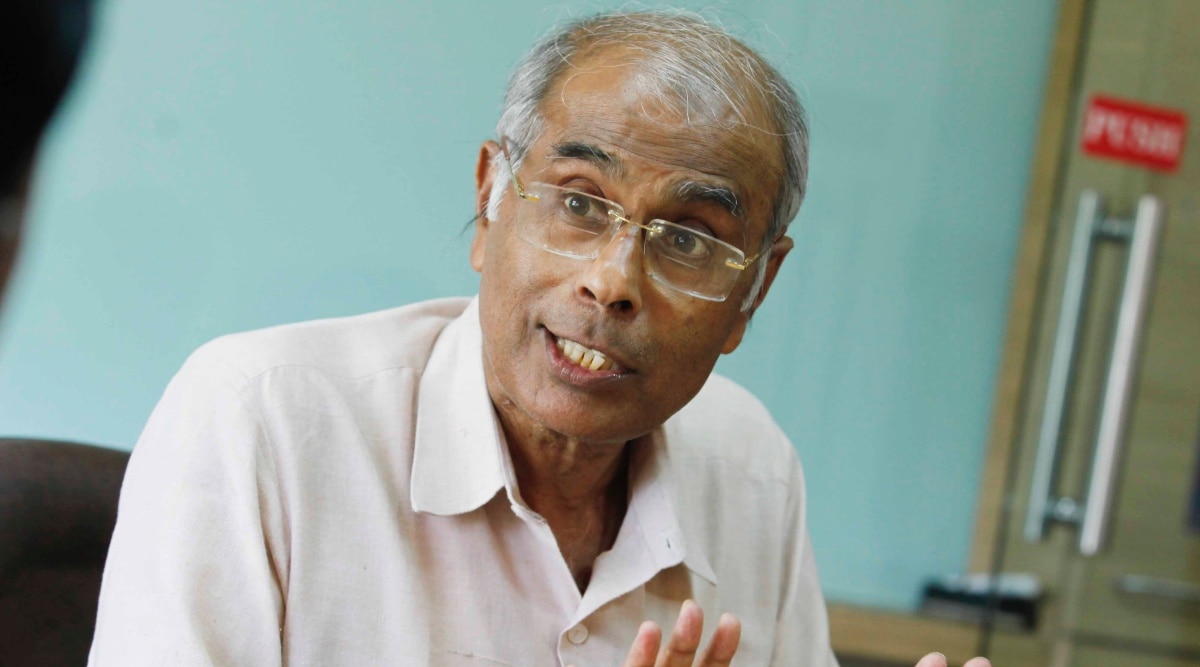
Additionally, there exists the Drugs and Magic Remedies (Objectionable Advertisements) Act, 1954, which criminalises the advertisement of drugs that claim to have magical healing properties. However, enforcement has been weak, allowing fraudulent medical claims to flourish unchecked.
One state that has taken a proactive approach is Maharashtra, which enacted the Prevention and Eradication of Human Sacrifice and Black Magic Act in 2013. This legislation criminalises exploitative practices linked to black magic, human sacrifice, and misleading ‘magical’ remedies. The act was championed by rationalist Narendra Dabholkar, who worked tirelessly to expose fraudulent godmen. Tragically, he was assassinated by right-wing extremists in 2013, a stark reminder of the risks faced by those challenging the deep-rooted superstitions in Indian society.
If India is to truly combat the menace of fraudulent godmen, it must enforce existing laws without political or religious bias. A failure to act decisively will only allow these figures to continue exploiting millions, unchecked and unchallenged.

A Sucker is Born Every Second
Despite being repeatedly exposed, self-styled godmen continue to enjoy widespread influence and immunity from accountability. Many of these figures, often elderly men who claim to be spiritual guides, manipulate their followers while preaching against immorality.
Bhavdeep Kang, author of Gurus: Stories of India’s Leading Babas, believes that one of the main reasons these godmen escape scrutiny is the level of dependence their followers develop on them.

"These godmen become central figures in the lives of their devotees, not just as spiritual mentors but also as family confidants and even business advisors. This creates a dependency where devotees feel personally invested in the purity of their guru, making them less likely to hold him accountable," Kang told Press.

She further explains that many people turn to these spiritual figures in search of guidance amidst the rapid socio-economic changes in modern India. Factors such as community displacement, increasing urbanisation, and societal pressures make people more vulnerable to such figures who claim to offer solutions to their struggles.
Prabir Ghosh, the General Secretary of the Science and Rationalists’ Association of India, argues that blind faith in these holy men is deeply ingrained in Indian society. "Indians have a strong belief in miracles and often look for someone who can relieve them of their miseries. This is the primary reason why so many fall for these so-called godmen," Ghosh explains. Many of these self-styled gurus begin their journeys as small-time preachers in rural villages and towns, establishing close ties with local communities. Over time, they gain cult-like status, amass vast numbers of followers, and sometimes even secure political connections, which they use to shield their illicit activities from scrutiny.
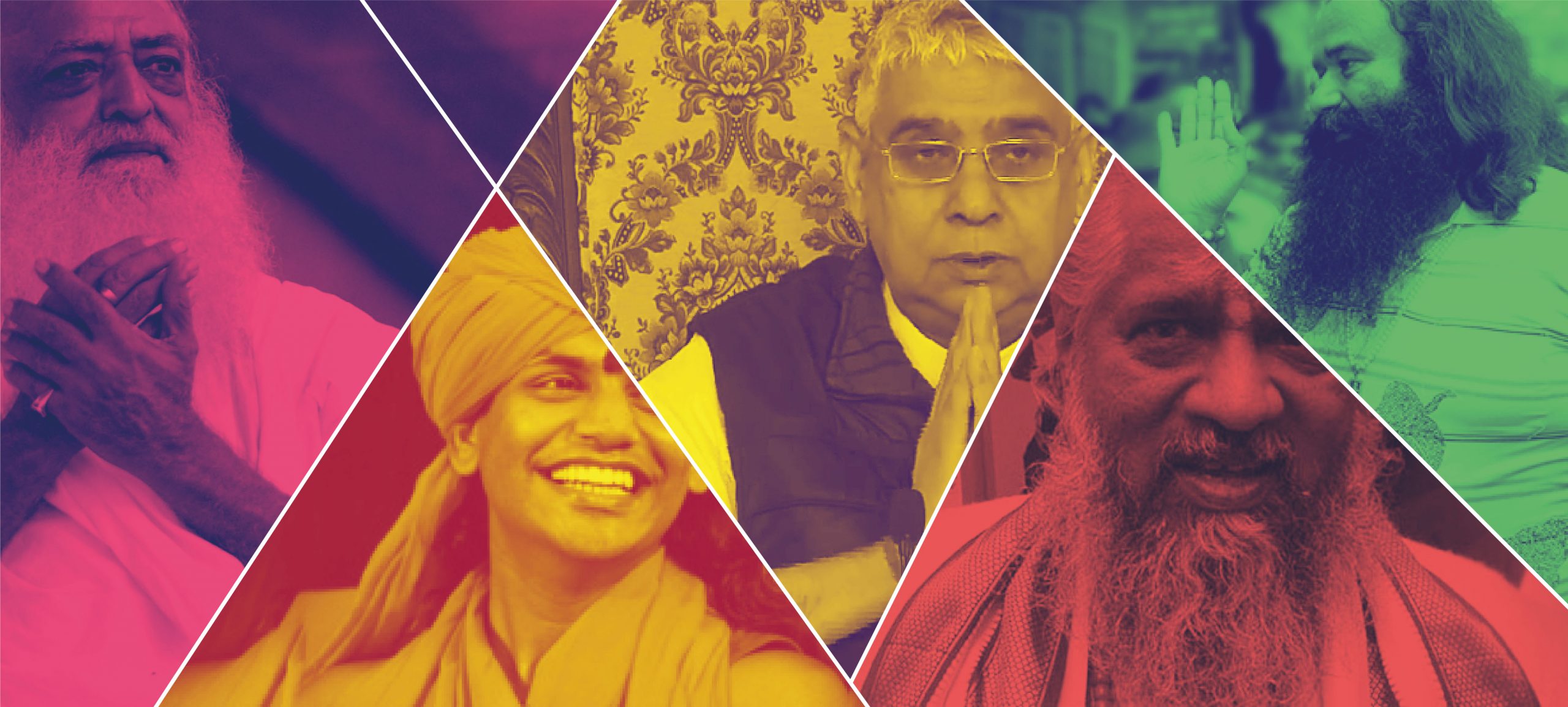
The Business of Faith
Scandals surrounding godmen are not rare. Even organisations with a seemingly more refined image, such as Sri Sri Ravi Shankar’s Art of Living, have faced serious allegations. A former devotee, K (name withheld), describes how she was drawn into the movement after her father's death, seeking peace. However, over time, she observed manipulative tactics designed to keep followers financially and emotionally invested.
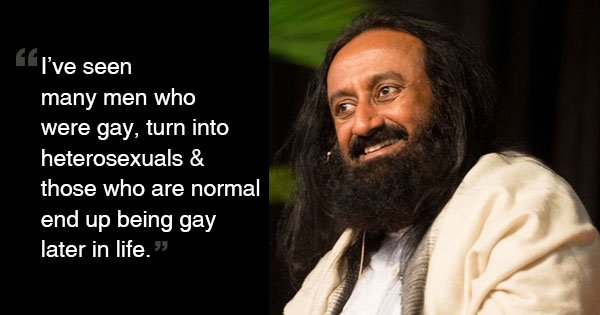
“I was constantly encouraged to take more courses, all of which were paid. But the turning point was when I was sent to Gujarat to discourage Christian conversions. That’s when I realised I was being used for an agenda," she recalls. Moreover, she faced discrimination due to her queer identity, despite Sri Sri Ravi Shankar publicly supporting LGBTQ+ rights. "My teachers made homophobic remarks about my appearance and sexuality. It became a toxic environment," she says.
"People across India have a natural inclination towards mysticism. Many are easily deceived by the saffron robes these godmen wear, believing them to be true spiritual saviours. Once faith takes over, logic and reasoning are abandoned," sociologist Pradeep Singh told DW.
Despite repeated revelations of abuse and scandals, self-styled godmen continue to thrive across India. The country’s deep-rooted faith in the irrational and the unexplainable remains unshaken, allowing many such figures to operate with impunity even in the face of glaring evidence of wrongdoing.
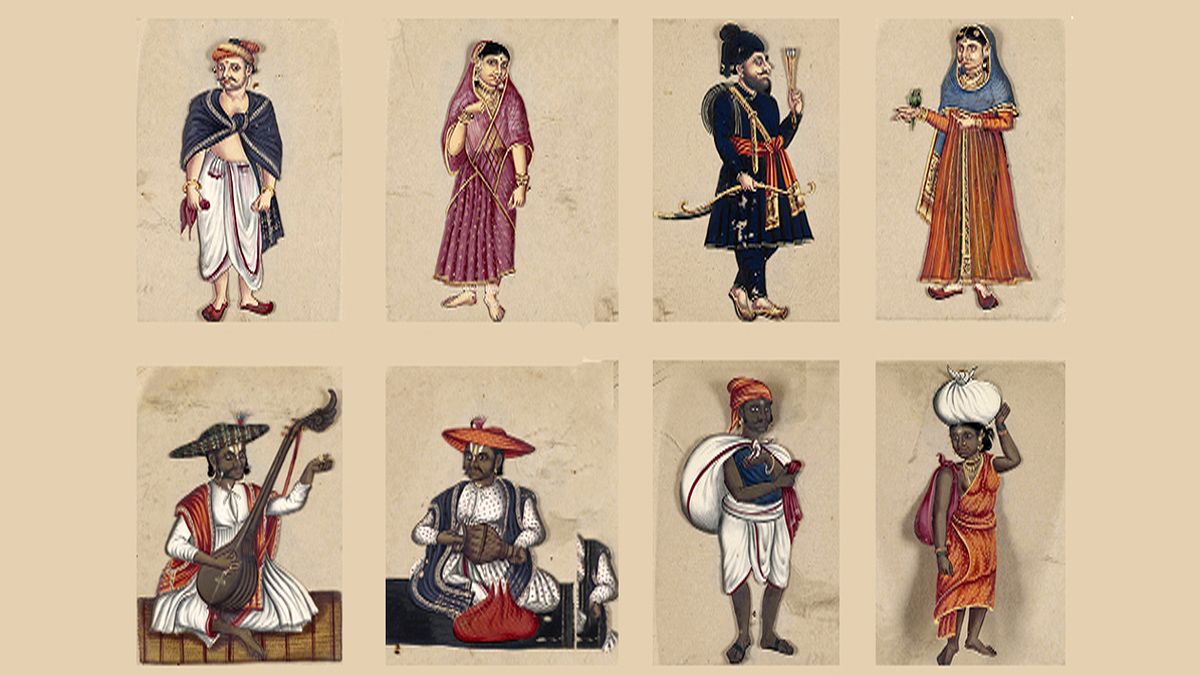
A Broken Down Society is Easy to Manipulate
A closer look at the followers of Bhole Baba reveals a pattern: they are predominantly poor, landless, and illiterate, belonging to marginalised communities such as Other Backward Classes (OBCs), Jatavs, and Dalits—groups historically ostracised by the Hindu caste system. While orthodox Hinduism upholds caste hierarchies and discriminates against Dalits, godmen provide them with a sense of empowerment, albeit fragile.
According to Yogesh Snehi, a professor at Ambedkar University in Delhi, Bhole Baba’s popularity stems from the Dalit community’s desire for an alternative form of religiosity. These self-styled spiritual leaders, particularly those from lower-caste backgrounds, offer their followers a semblance of religious and social security. Women make up a significant portion of their devotees, and notably, many of the victims of the Hathras stampede were women and children.
Enduring Clout of Controversial Godmen
Similar figures exist beyond Uttar Pradesh. In Punjab and Haryana, numerous lower-caste godmen operate massive religious congregations known as “deras” and command millions of followers. One of the most infamous among them is Gurmeet Ram Rahim Singh of Dera Sacha Sauda, who enjoys an almost divine status among Dalit Sikhs. In 2017, Ram Rahim was convicted of raping two female disciples and sentenced to 20 years in prison. In 2019, he was found guilty of murder. Yet, despite his convictions, his influence has remained largely undiminished. Following his sentencing, violent riots broke out, leaving 38 people dead. More alarmingly, since 2017, he has been granted parole nine times despite serving a life sentence. Senior BJP leaders in Haryana have even participated in his “cleanliness drives” while he was on temporary release, further cementing his political influence.

A Façade of Reform and Religious Symbolism
For many of their followers, these godmen represent an escape from caste discrimination. They encourage their devotees to abandon caste-based surnames and adopt neutral titles like “Insaan” (human). Despite these superficial reforms, their teachings often align with Hindu religious narratives. Bhole Baba, for instance, is frequently equated with Hindu deities such as Shiva or Krishna.
Hindutva groups, including the BJP and the Rashtriya Swayamsevak Sangh (RSS), have expressed support for these cults, viewing them as extensions of Hinduism. However, genuine Hindu religious leaders have raised concerns about the fraudulent activities of these godmen. In 2017, the Akhil Bharatiya Akhara Parishad, the apex body of Hindu ascetics, compiled a list of fake godmen and urged the public to remain cautious of such fraudsters.

Media, Popular Culture, and the Perpetuation of Blind Faith
The mainstream media has played a significant role in amplifying the influence of these cults. Hindi news channels and regional television networks frequently feature godmen on prime-time slots, as their large followings help boost television ratings. In doing so, these channels inadvertently promote superstition and irrational beliefs. Popular culture has also explored the darker side of India’s godmen. The recent Netflix film Maharaj, set in 19th-century Gujarat, delves into the story of a notorious godman who exploited his female devotees. The film serves as a reminder that while centuries have passed, little has changed in India’s relationship with fraudulent spiritual figures.

The prevalence of fake godmen in India is not merely a consequence of blind faith but also of deep-rooted socio-political dynamics. They thrive on caste-based inequalities, economic despair, and political patronage. While some legal measures exist to curb their excesses, meaningful action against them remains rare. Until society and the state take firm steps to dismantle their influence, these fraudulent figures will continue to exploit the vulnerable, enriching themselves at the cost of their followers' lives and dignity.
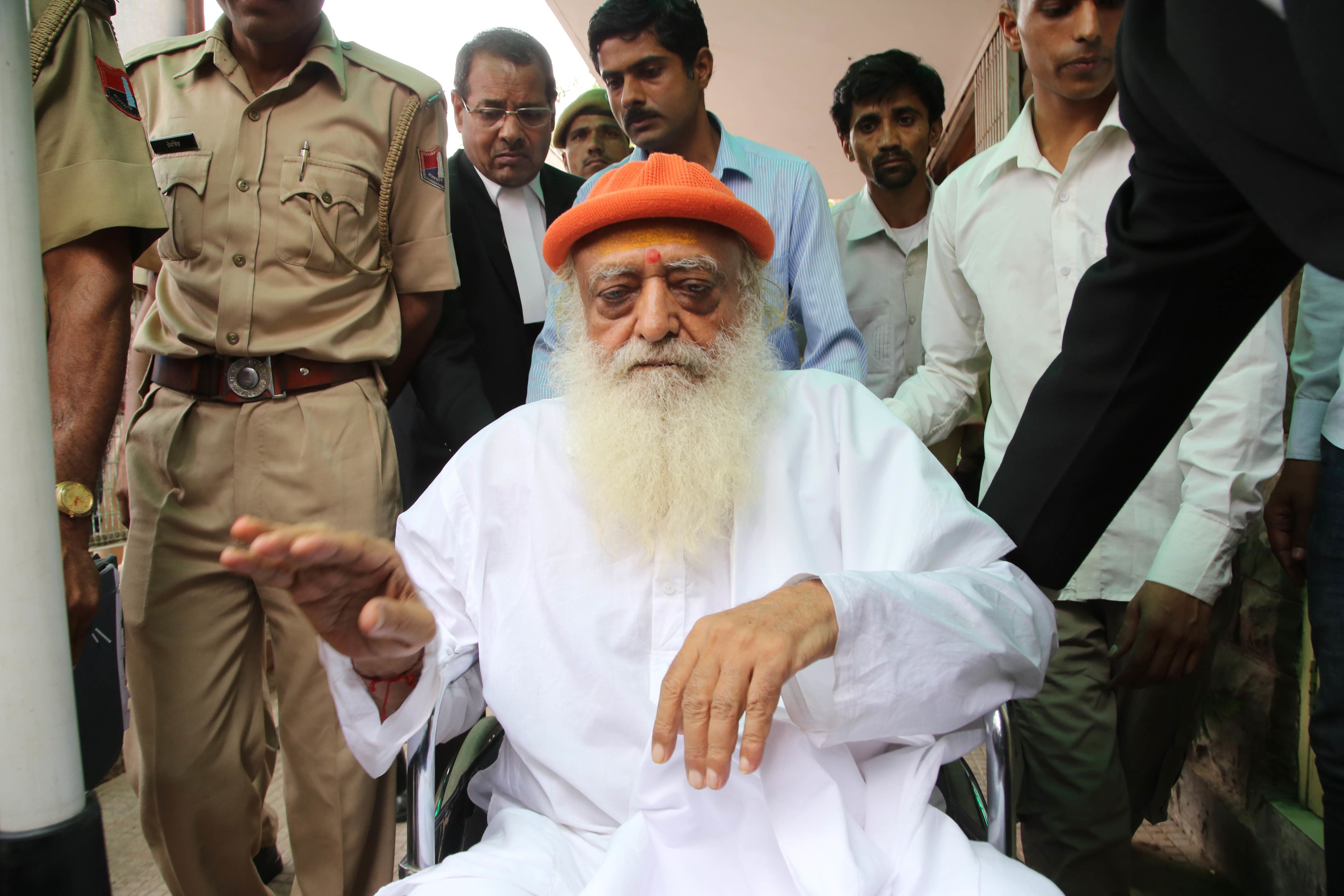
Telltale Signs of a Failing, Backward Sliding Society
Sociologist Shiv Visvanathan notes that the rise of such figures reflects the failure of conventional politics and religion. "When mainstream systems fail to address people's suffering, they seek alternative forms of dignity and hope. This is why unconventional religious groups flourish," he explains. This blind faith has led to bizarre incidents, such as a doctor being tricked into purchasing 'Aladdin’s magical lamp' for an exorbitant sum or a family being convinced to commit a brutal exorcism. The list of blacklisted godmen in India continues to grow, yet their influence remains strong. Ultimately, India's deep-rooted belief in spiritual figures, combined with a lack of faith in traditional institutions, ensures that self-proclaimed godmen and godwomen will continue to flourish. And, as history has shown, the business of faith is one of the most lucrative and enduring enterprises in the country.
The views expressed in this article are personal. They do not reflect the opinions, beliefs, or positions of Vygr and Vygr Media Private Limited.
With inputs from agencies
Image Source: Multiple agencies
© Copyright 2024. All Rights Reserved Powered by Vygr Media.

